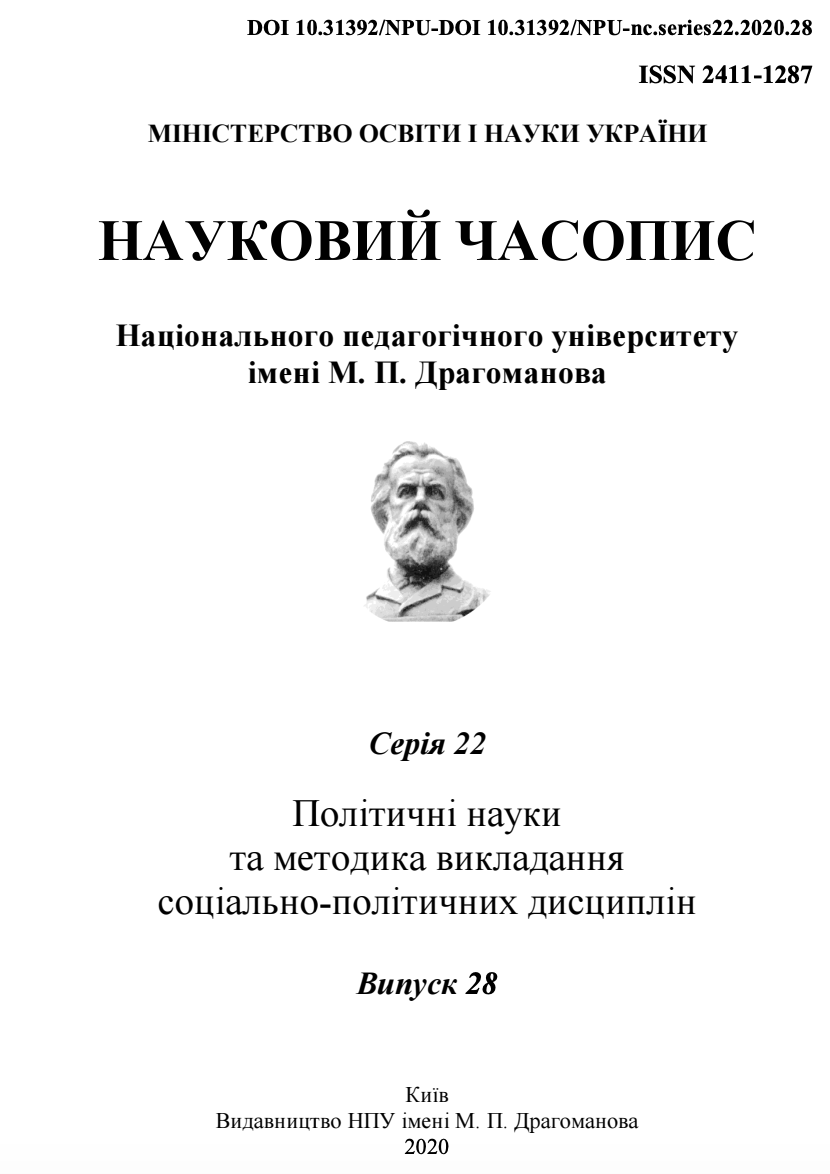The Concepts of «Trust» and «Political Trust» in Political Science
Keywords:
trust, political trust, political competence, political institute, political system, political values, political life, social capital, legitimacy of political power, democracy, civil society, political absenteeism, political parties, public organizationsAbstract
The article examines the main conceptual approaches to defining the concepts of «trust» and «political trust», examines the nature and conditions of the formation of trust. The peculiarities of interpretation of these concepts from the point of view of institutionalism and neo-institutionalism, political-cultural approach and the theory of social capital are analyzed. Political trust is seen as one of the key factors in the political process, which plays a significant role in ensuring political stability and progressive development of society. Delegating powers give citizens the right of political institutions to make binding decisions, take the actions necessary to implement them, and thus give political authority to the government - a factor that is important for democracy. Attention is paid to the functions of political trust and its place in the process of implementation of the basic ideas and principles of democracy, deepening of democratic processes, development of civil society. The relationship of political trust with the processes of legitimation of power is examined through an assessment of the extent and features of citizens' support for political institutions and its role in providing the conditions for the effective functioning of political institutions and the activities of political leaders. The article presents a sociological survey that demonstrates a low level of trust in the overwhelming number of political and social institutions, which confirms the presence of a critical attitude and the potential for caution in trust as a social phenomenon.

